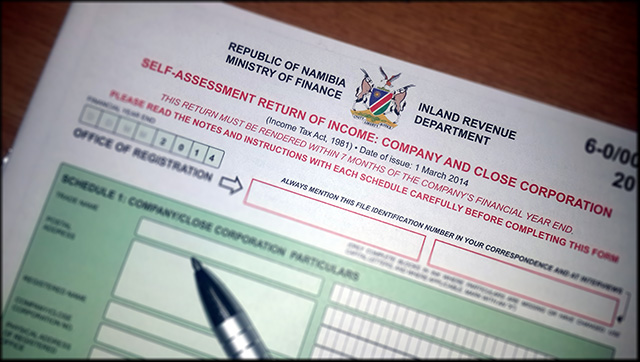FROM a date yet to be announced by the minister of finance soon – manufacturers will no longer benefit from a reduced tax rate of 18%, as well as other tax incentives, but will start paying corporate tax just like any other businesses.
This comes after an amendment to scrap section 5A of the Income Tax Act was passed by parliament and signed into law by the president late last month.
Section 5A as part of the tax code was used to give manufacturers the benefit of a reduced tax rate, and additional allowable tax deductions.
Manufacturers at the moment pay an 18% tax rate, and are given a 10-year capital allowance claim for buildings instead of 20 years. They are additionally granted a 125% tax deduction for expenses such as salaries, training costs of employees of taxpayers who are registered manufacturers.
Other incentives further include a 125% tax deduction for export expenses and of land-based transportation costs.
These enticements are given for a period of 10 years, in conjunction with the ministry of trade, approval of a company as a manufacturer.
To date there are close to 130 companies that have benefited from these tax incentives.
Data from the tax office shows that between 2010 and 2019, registered manufacturers paid N$500 million corporate tax – averaging N$50 million a year.
The ministry this year had also said, because of the incentives, at least 80% of manufacturing companies were in a tax loss position over the same period.
The incentives were introduced in the tax code to entice companies mainly to employ more people, add more value to Namibian raw materials, as well as increase net exports or replace and reduce imports.
They also served to lure in investors, who mainly have these on their checklist when seeking investable jurisdictions.
Justifying why these incentives had to be scrapped, former finance minister Calle Schlettwein told lawmakers early this year that these tax bonuses had not achieved the anticipated growth but had cost the government huge revenue losses.
He also said the incentives did not yield the desired outcomes in terms of attracting new investments and creating jobs and therefore a new approach was needed.
The Namibian Manufacturers Association (NMA) had, however, complained then that while the incentives had not yielded the exact figures that the government wanted in terms of jobs and investments, the companies that have benefited were assisted a great deal to become competitive even at international level.
Removing the incentives would deal a fatal blow to the manufacturing sector, NMA’s chief executive officer Ronnie Varkevisser had said.
Varkevisser has for long backed the idea that the government should start giving incentives to start-ups and small manufacturers as soon as possible to strengthen the industrialisation dream of the country.
The need to amend the law received support from opposition parties in parliament as well as policy review experts.
The amendment to the Income Tax Act also includes the repeal of several sections in the Export Processing Zone Act, which exempt export processing zone companies and management companies from paying value added tax, income tax, as well as customs and excise duties.
These sections, “notwithstanding anything contained in any other law cease to have force of law on the date of commencement of this provision,” read the amendment act.
The special income tax incentives granted to registered manufacturers shall continue to apply until the end of the tax year that is to be announced soon by the new minister Iipumbu Shiimi.
In his budget speech this year Shiimi said the phasing out of these base-eroding tax exemptions will be replaced by the introduction of special economic zones, while manufacturing incentives are to carry grandfathering provisions.
“These changes are due for implementation starting this year,” he had said.
The scrapping of incentives is expected to lead to an increase in government revenue, and would also allow Namibia to escape falling back to the European Union’s grey list of non-cooperative jurisdictions.
Stay informed with The Namibian – your source for credible journalism. Get in-depth reporting and opinions for
only N$85 a month. Invest in journalism, invest in democracy –
Subscribe Now!










